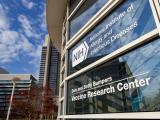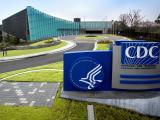Feb 28, 2011 (CIDRAP News) – Connecticut lawmakers are set to debate a law that would require most employers to offer paid sick leave, armed with the results of a new survey that suggests that San Francisco workers benefitted from a similar law.
In 2006, San Francisco voters approved an ordinance allowing all workers to earn and use paid sick days, making it the nation's first such policy. The law took effect in 2007 and applies to all employers, and a recent survey found few adverse effects reported by the city's employers.
Though many states and cities have considered similar policies, San Francisco and Washington, DC, are the only jurisdictions that have them. If Connecticut passes its law, it would be the first US state to mandate paid time off.
At least two other legislative bodies are considering similar measures. A Philadelphia city council committee is holding a public hearing on the issue tomorrow, and an Illinois Assembly committee is scheduled to have a hearing on proposed sick leave legislation on Mar 2, the National Partnership for Women and Families said today in an e-mail to the group's subscribers.
Many infectious disease experts have hailed paid sick days as one key to slowing the spread of illnesses such as flu that transmit easily in workplace and school settings. Some studies suggest that workers who lack paid sick leave are more likely to work when sick or send a sick child to school. However, business groups have cautioned that forcing them to provide paid sick leave could slow economic recovery and threaten future hiring and investment.
At a media telebriefing today, the Institute for Women's Policy Research (IWPR), based in Washington, DC, announced the findings of its survey of San Francisco's workers and employers. In addition, Connecticut state Rep Zeke Zalaski (D, Southington) explained how proposed legislation would affect his state's workers.
Zalaski, chair of the House Labor and Employees Committee, said the group will hold a public hearing tomorrow on SB 913, which would require employers with 50 or more workers to provide sick leave to certain employees for use for the employee's sickness; for the employee's child's, parent's or spouse's sickness; or to deal with sexual assault or family violence issues.
He said he expects the assembly to debate the law as soon as Mar 3. He said he was optimistic about the law's passage, given that the state's newly elected governor, Dan Malloy, included it as a campaign issue. "We have been advocating for this for many years now, and now we have a governor who made it part of his campaign," he said.
A Connecticut business group, however, said the law would be costly to employers and could slow the state's job growth. The Connecticut Business and Industry Association (CBIA) said in a Feb 25 statement. "Individual businesses should have the flexibility to develop benefits based on what they can afford, what works best for their employees and what competitive market forces demand, in order to attract and keep qualified employees," the group said.
The IWPR's 44-page report on San Francisco's experience with a similar sick leave law includes findings from a two-part survey. The worker survey was conducted by telephone by David Binder Research in January and February 2010. It includes interviews with 1,194 workers age 18 and older. A companion telephone survey of 727 San Francisco employers was conducted by National Research LLC in July through December 2009.
Employees got either 5 or 9 sick days under the law, but workers typically used 3 paid sick days during the previous year, and about one-quarter did not use any, the IWPR reported.
More than half of workers said they benefitted from the new law. For example, they said employers became more supportive of sick day use, the number of sick days increased, and employees were better able to care for themselves and their family members.
Parents with paid sick days were 20% less likely than those without paid sick time to send a child to school sick.
The employer component of the survey found that six of seven did not report any negative effects on profitability from the law.
About one-third said they ran into difficulties implementing the law, and one-sixth said the law required them to completely rework their sick leave policy. Nearly the same portion said they still were not in compliance with the law.
Robert Drago, PhD, the IWPR's director of research and a coauthor of the report, said the report suggests employees used the paid sick leave policy in the same manner as people use car insurance: They had the days but didn't use all of them. He said the findings should reassure employers, because they show that employers didn't have to cover the many unused paid sick leave days.
"This can cut costs to employers, decrease the spread of communicable diseases, and encourage more loyal employees," he said. "It's not just the right thing to do; it makes sense for employers, employees, and the health of the nation."
See also:
Feb 10 IWPR San Francisco paid sick leave report
Feb 25 CBIA statement
Jun 21, 2010, CIDRAP News story "Survey finds strong support for paid sick leave"
Nov 17, 2009, CIDRAP News story "Sick-leave standard as anti-flu weapon stirs debate"



















